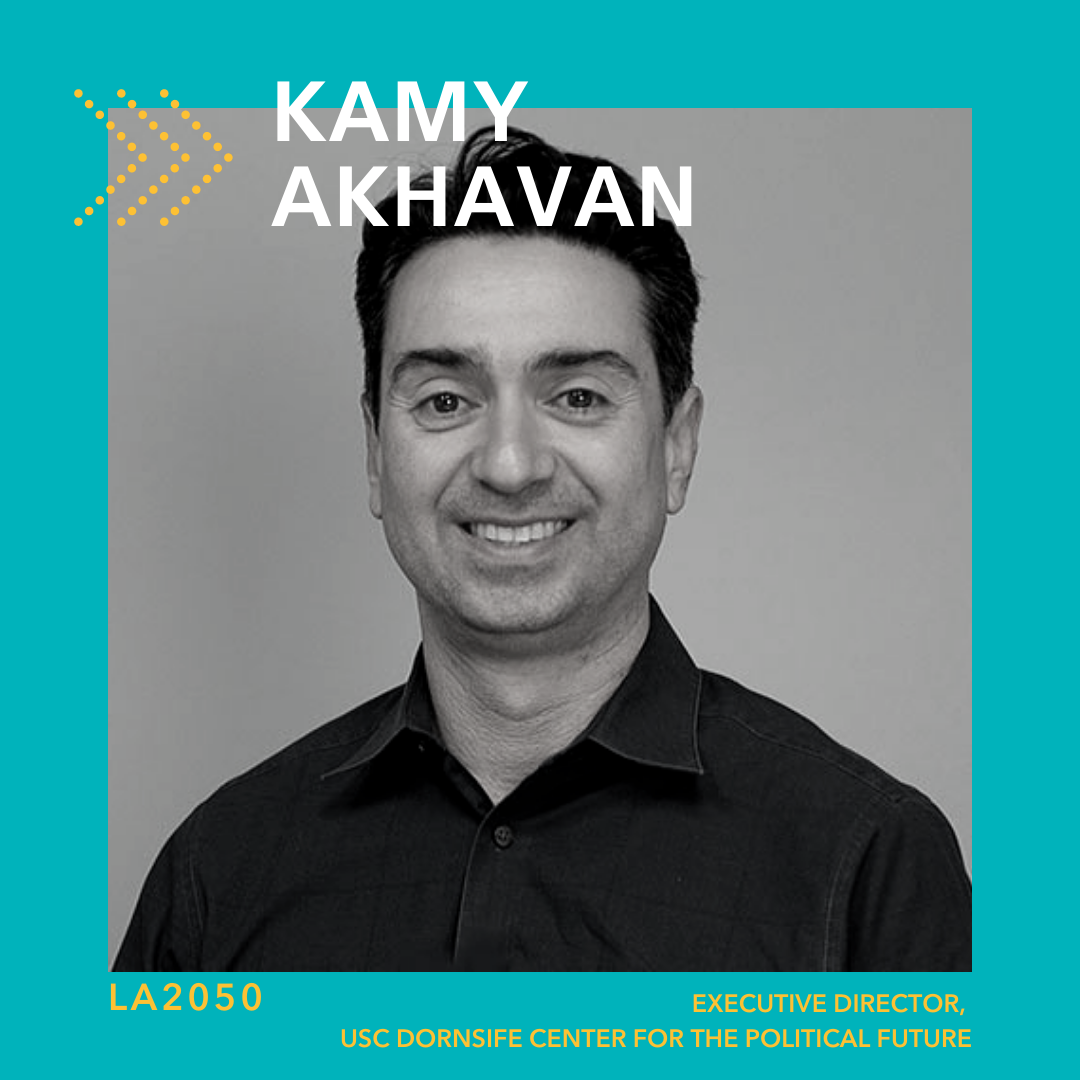LA2050 Blog
We’ve got access to the information that every Angeleno needs to make an impact. Our blog features the latest LA2050 news, announcements, features, happenings, grantee updates, and more.

Making It in Social Impact with Kamy Akhavan
PostedWe talked with Kamy Akhavan, Executive Director of the USC Dornsife Center for the Political Future, to learn about his experience working in social impact and to get his advice for those who might want to work in policy, politics, or the nonprofit sector.

Q: What motivated you to start your career in social impact?
A: I was born in the back seat of a taxi in Iran, moved to south Louisiana at age one, and ended up in Torrance, California for high school and UCLA for college. I lived in more than 20 places by the time I was 18 - from subsidized housing to a mobile home to hotels to big beautiful houses. My experience as a rootless immigrant taught me that people everywhere share human values that transcend our geography. I recognize that American democracy is precious, empowering, and inspiring to billions of people who long to enjoy freedom. My motivation to public service stems from wanting to relate to people on our shared values - what unites us versus what divides us.
Q: What do you do in your current position?
A: My job is to run a top-tier educational organization that trains people in practical politics and inspires them to be civically engaged and to bridge divides. On a day-to-day basis, I work to develop programs that let students interact with elected officials, political operatives, academics, activists, and other national leaders so they can gain experience challenging others respectfully while having their own views challenged. Participants learn about issues, elections, each other, and effective ways to communicate and get things done together. In our sadly divided times, these skills are especially important to the future of American democracy.
Q: What one skill or resource has been indispensable to your career thus far?
A: The skill of resilience has been indispensable. Resilience requires courage to ask tough questions and listen to, and even learn from, responses that can be offensive. Resilience requires vulnerability when expressing yourself honestly. Resilience requires strength when resisting bad influences or standing firm for your values. Building resilience comes from listening, critical thinking, humility, and developing your own moral and intellectual compass that guides you in all situations. The best way to learn resilience is to be uncomfortable then adjust.
If you're interested in learning more about his work, be sure to follow on Twitter: @kamyakhavan and @cpfpolfuture